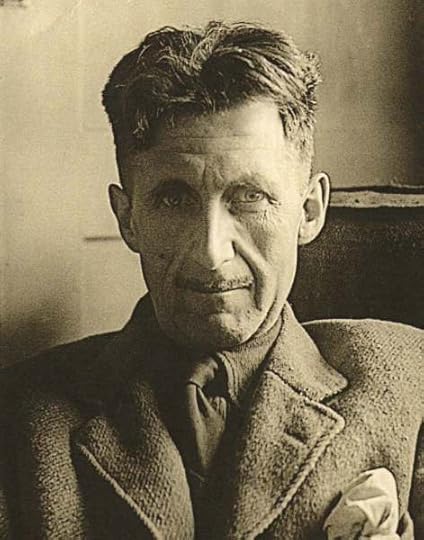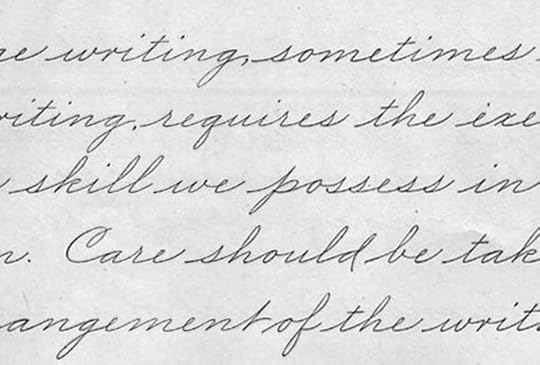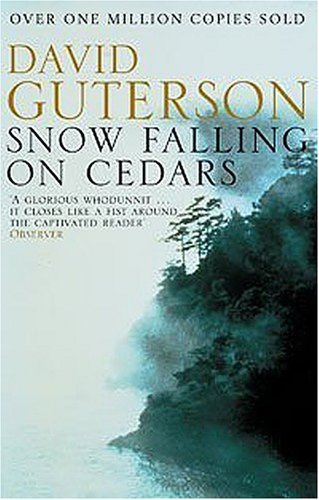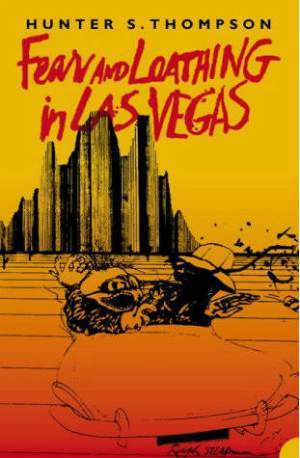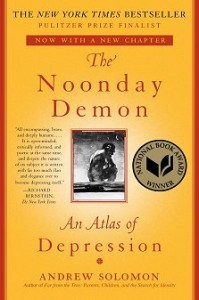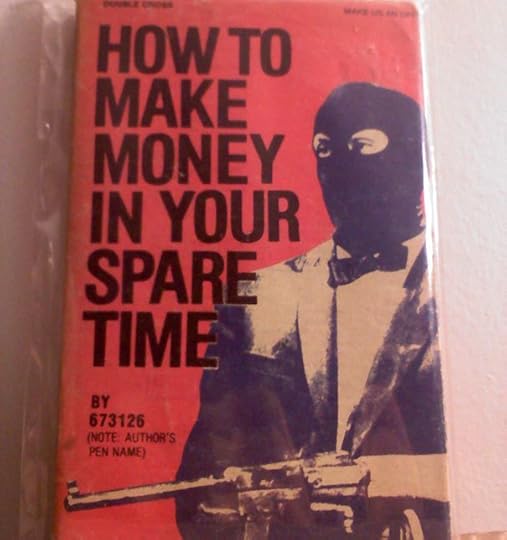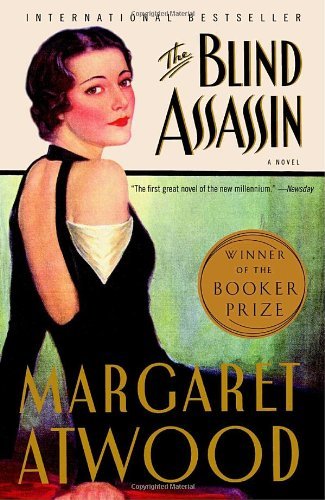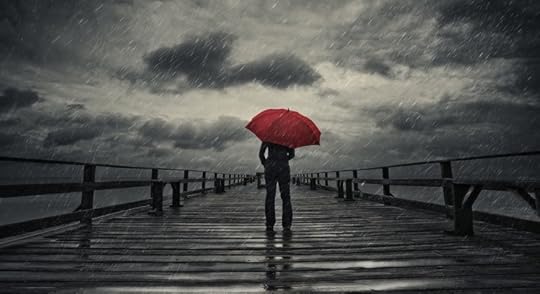Richard Harris's Blog, page 41
November 1, 2016
Perseverance
Necessity, as they say, is the mother of invention, but impending death can be just as powerful a source of inspiration when it comes to creation.
Today, I think it’s fair to say that almost everybody in the West is familiar with some part of George Orwell’s writings, even if it is unconsciously through such thought-provoking shows as Big Brother.
While Orwell is still famous all these decades on for works including Animal Farm, it is undoubtedly Nineteen Eighty-Four that continues to resonate with us more than any of his other stories. Perhaps not surprisingly, especially for those who believe in life mirroring art (and vice versa), the road to completing Orwell’s opus was nothing short of heartbreakingly tragic – and yet somehow uplifting, if for no other reason than the sheer determination he showed in getting down on paper what would quickly become one of the most influential novels of the 20th century.
As Robert McCrum noted in an article for The Guardian titled “The masterpiece that killed George Orwell,” Mr. McCrum “tells the compelling story of Orwell’s torturous stay on the [remote Scottish] island where the author, close to death and beset by creative demons, was engaged in a feverish race to finish the book.”
In a nutshell (stress the nut in this “shell”), Orwell suffered through the misery of living in wartime London in the lead-up to writing Nineteen Eighty-Four, what with the bombings, the rations, and the constant fear of death in some variety. Then his flat was torn asunder by doodlebugs (i.e. his apartment was destroyed by termite-like bugs) just after he and his wife Eileen adopted their only child, Richard. Then, two months before VE Day and the end of the war in Europe, his wife died under anesthesia during a routine operation.
Penniless, suffering from ill health as a result of his chest/lung problems, and heartbroken at the loss of his wife at such a young age, the widower and single parent traveled to the island of Jura, Scotland, where his friend and boss from The Observer owned an estate he said Orwell could use to pen his next novel.
While living and writing on the inhospitable rock (“mountainous, bare and infertile, covered largely by vast areas of blanket fog”), Orwell nearly drowned one day while out with his son, only to develop TB and be mostly bedridden for the rest of his days. No matter how sluggish his days, however, Orwell crept along and finished what initially he called The Last Man in Europe, but later settled on as Ninety Eighty-Four.
As he wrote years earlier in an essay, almost presaging this final dance with his craft:
“Writing a book is a horrible, exhausting struggle, like a long bout of some painful illness. One would never undertake such a thing if one were not driven by some demon whom one can neither resist or [sic] understand. For all one knows that demon is the same instinct that makes a baby squall for attention. And yet it is also true that one can write nothing readable unless one constantly struggles to efface one’s personality.”
By the end of 1948, when he submitted the manuscript, Orwell’s health was deteriorating quickly. Nonetheless, Ninety Eighty-Four was published on June 8, 1949 to huge acclaim, and people across the English-speaking world awoke that day to the opening line of a novel that has since become timeless: “It was a bright cold day in April, and the clocks were striking thirteen.”
Although he remarried in October 1948, any happiness he might have felt was short-lived; Eric Blair (aka George Orwell) died, alone, of a massive haemorrhage on January 21, 1950. And as despondent as his “Writing a book is a horrible, exhausting struggle” passage may seem, it did end on what Mr. McCrum called “that famous Orwellian coda.”
“Good prose is like a window pane.”
Amen.


October 31, 2016
The Slow Death of Cursive
Jeez, I remember when I used to write like that! Sort of…but not really. Actually, my cursive was always more akin to a drunk, blind, mentally frail chicken scratching at a piece of paper with a pen that’s recently exploded all over its pristine claw.
But on the plus side, I can actually read that image above, and as frightening as it sounds to anyone born before December 31, 1999, that is now actually considered a skill.
Do I show my age by bemoaning the lost art of cursive and its gradual disappearance from our schools and the fabric of our everyday lives?
If so, good on me!
Mark Oppenheimer (@markopp1) wrote (though not in cursive) a heartbreaking piece (for sentimental farts like me) in The New Yorker called “The Lost Virtue of Cursive” about one man’s fight to keep the storied craft alive, if only to communicate with his children in a world overrun by the typed word and – if this trend keeps up – emoji and emoticons.
Perhaps this calls for a revolution. We’ll call it #BringBackCursive, but we’ll type it out on a keyboard and ensure it comes complete with a hashtag.


Quote of the Day
Aside from all the acclaim (“A glorious whodunnit” and bestseller upon publication), prizes (PEN/Faulkner Award for Fiction), and controversy (it’s been banned at schools in Canada and the U.S.), there’s something else about David Guterson’s Snow Falling on Cedars that I love, and that’s the fact that it took a teacher with a full-time job 10 years of waking up early to complete this novel. Lest we forget, disciplined writing does equal success and hard work does pay off.
Oh, and there’s also its quiet, contemplative prose, as evidenced here.
“The trick was to live here without hating yourself because all around you was hatred. The trick was to refuse to allow your pain to prevent you from living honorably. In Japan…a person learned not to complain or to be distracted by suffering. To persevere was always a reflection of the state of one’s inner life, one’s philosophy, and one’s perspective. It was best to accept old age, death, injustice, hardship – all of these were part of living.”


October 30, 2016
Quote of the Day
It’s easy to criticize Hunter S. Thompson today. Bigot, homophobe, drug addict, alcoholic, quintessential shit disturber – the list is endless, really. But in his more or less less-addled moments of writing clarity, he did manage do some interesting things that have survived to this day, the most famous of which is his style of gonzo journalism (think of how Donald Trump speaks at rallies today, a complete lack of objectivity while seamlessly including himself in a first-person narrative to spin ridiculous tales).
However, Hunter S. Thompson could also pen some real diamonds in the rough that would shine through amid the other more harsh, biting and (at times) vulgar observances. One case in point being the quote below.
Before we get to that, though, I do have to say that one of my most enduring reading moments came when digesting Fear and Loathing in Las Vegas: A Savage Journey to the Heart of the American Dream for my first time. I read large portions of it while going to and from work every day on the bus, and would consistently break out laughing so hard that tears streamed down my face. I was living in a small Korean city at the time and one of a handful of stick-out-like-a-sore-thumb foreigners there, so I’m sure I left a rosy impression on my fellow passengers (“Hey, do you think all Americans [sic, because obviously all Caucasians are Americans] are bat-shit crazy and cry while reading? Or can they simply not read and ride at the same time? Ha ha ha.”).
Nonetheless, if you haven’t read FALILV, do so. Soon and very soonly…
“History is hard to know, because of all the hired bullshit, but even without being sure of ‘history’ it seems entirely reasonable to think that every now and then the energy of a whole generation comes to a head in a long fine flash, for reasons that nobody really understands at the time—and which never explain, in retrospect, what actually happened.”


October 29, 2016
Quote of the Day
Ah, yes, the Brits. When those wily Britons are not doing maths or enjoying some ice lollies on lifts or in lorries, they have a special ability to craftily intertwine sexes into their literatures. Who would have thunk that the hoity-toity label often attached to many classic British authors could have been a ruse! Deep down, they just have a more refined way of scintillating the loins, as evidenced in these doozies below.
“Sir Leicester leans back in his chair, and breathlessly ejaculates, ‘Good heaven!'” Bleak House, Charles Dickens
“All this fuss about sleeping together. For physical pleasure I’d sooner go to my dentist any day.” Vile Bodies, Evelyn Waugh
“Fanny rode on a lion and felt very grand. Dick chose a horse.” The Magic Faraway Tree, Enid Blyton
“Let us toss as men do.” Far from the Maddening Crowd, Thomas Hardy


October 28, 2016
Having Fun Does Not Include Making Fun of Others
Sanity and mental illness lie on a spectrum, and most people occasionally cross over from one side to the other. It’s the proximity of mental illness rather than its obscurity that makes it so scary. But it should be scary in a “fix the broken care system” way or in a “figure out the brain’s biology” way, and not in a “scream for laughs” kind of way.
In a very poignant piece on mental health published recently in The New York Times, Andrew Solomon (@Andrew_Solomon) brings the lighthearted rhetoric of the current political malaise and common misperception about “crazy people” to the forefront in a way that is as engaging as it is educational.
Titled “Mental Health Is Not a Horror Show,” Solomon is not just the acclaimed author of The Noonday Demon: An Atlas of Depression, but is also a psychiatric patient and a professor of clinical psychology, so he knows of what he speaks. As he writes early in his piece:
I became severely, clinically depressed for the first time in 1994. I was unable to speak, unable to get out of bed, unable to function in the world, and I thought of suicide constantly. I was afraid all the time but didn’t know what I was afraid of; I was numb to my own emotions and stripped of vitality.
You can read the article for yourself, but I think Mr. Solomon does a brilliant job of tying in the current social climate with an issue many people have only recently started waking up to with any real empathy. I’ll let the author himself close this out:
Our nation is in a moment when prejudice runs riot. In this election season, assertions of strength have often overtaken moral righteousness in the public imagination; success has been posited as incompatible with empathy. That rejection of empathy is an authentic poison, pressing some people to understand themselves as less human than others, a danger associated with a proliferation of suicides. It’s hard to think well of yourself in a world that sees you as a threat.


The Importance of a Book’s Title
Remember that awesome novel Trimalchio in West Egg? Or how about that shameful autobiography called Four and a Half Years of Struggle Against Lies, Stupidity and Cowardice (which would have been the most ironic title ever considering its author)? Surely you remember the greatest dystopian work of fiction, The Last Man in Europe.
No? Well, you’re not alone.
The Huffington Post looked back at some classic novels and what they were almost called had someone not stepped in at the eleventh hour and said, “Umm…yeah…maybe. Then again, maybe not?”
Check out the full list from the article entitled “Awful Titles Famous Authors Almost Gave Their Novels.”


Quote of the Day
Winner of the Man Booker Prize in 2000, The Blind Assassin may be Margaret Atwood’s most famous novel on the international stage, but it’s by no means her only literary success in a career that has spanned more than half a century. Novelist, short story writer, businesswoman, mentor, environmentalist – there’s apparently nothing Ms. Atwood can’t do. Today, Margaret Atwood, Michael Ondaatje and Alice Munro form the triumvirate of Canadian literary royalty.
Here’s a snippet of writing gold from her award-winning novel:
“But thoughtless ingratitude is the armour of the young; without it, how would they ever get through life?…Without the protection of surliness and levity, all children would be crushed by the past – the past of others, loaded onto their shoulders. Selfishness is their saving grace.”


October 27, 2016
“The moment authors saw their debut books”
Deborah Dundas did a nice little write-up in the Toronto Star on 13 debut authors who have or will be appearing at the 2016 International Festival of Authors (IFOA), which runs until this coming Sunday, October 30, down at Harbourfront Centre. If you’ve never been to the IFOA, go! It’s a rockstar event for readers and writers alike.
Ms. Dundas asked the 13 men and women what it felt like to finally (my emphasis) have their “baby” (my word) in their hands, and the answers were, not surprisingly, pretty similar: Like, totally-shitballs-out-of-this-world-I-can’t-believe-this-has-happened-and-it-feel-as-if-my-hair’s-on-fire-amazinglynessawesomeful!!!!!!!! (Completely my paraphrase and destruction of the English language.)
First of all, congratulations to David Brock (Everyone is CO2), Nick Drnaso (Beverly), Rowan Hisayo Buchanan (Harmless Like You), Liz Howard (Infinite Citizen of the Shaking Tent), Amy Jones (We’re All In This Together), Lynne Kutsukake (The Translation of Love), Chris Oliveros (The Envelope Manufacturer), Molly Prentiss (Tuesday Nights in 1980), Alexandra Risen (Unearthed), Eric Beck Rubin (School of Velocity), Laurence Scott (The Four-Dimensional Human), Cheryl Lu-Lien Tan (Sarong Party Girls), and Ayelet Tsabari (The Best Place on Earth).
While I have yet to grace the stage at IFOA with my cornucopia of corny one-liners, I do remember that sunny afternoon I signed my first publishing contract (might have been fist-pumping the pristine air of Seoul when I walked out of the office) and then the day I actually touched my book in published form (as a manly man, there were no tears of joy, falling to one’s knees, screaming at the heavens, or holding of a ghetto blaster above my head while “In Your Eyes” played. No. Definitely and most certainly not).
Quite simply, it was a pleasant day.
For all you aspiring authors out there, I can assure you that more than the “drive to Burlington,” it’s worth waiting for that moment your little bundle of literary magic is born in printed form – no matter how long it takes.


Quote of the Day
In light (or lack of it) of today’s weather – the kind of weather that makes you wonder why you woke up in the first place – perhaps heed the advice below from Henry David Thoreau’s great essay on disobedience to an unjust state, Civil Disobedience. Although “Thoreau wrote this classic essay to advocate public resistance to the laws and acts of government that he considered unjust,” I may just take it literally today. You know, go for a walk in this crapstain weather and, you know, think about being cold and hungry. And most definitely weary. Then probably go home and, you know, warm up and have a bite to eat.
Mmm…deep thoughts…
“Take long walks in stormy weather or through deep snows in the fields and woods, if you would keep your spirits up. Deal with brute nature. Be cold and hungry and weary.”



